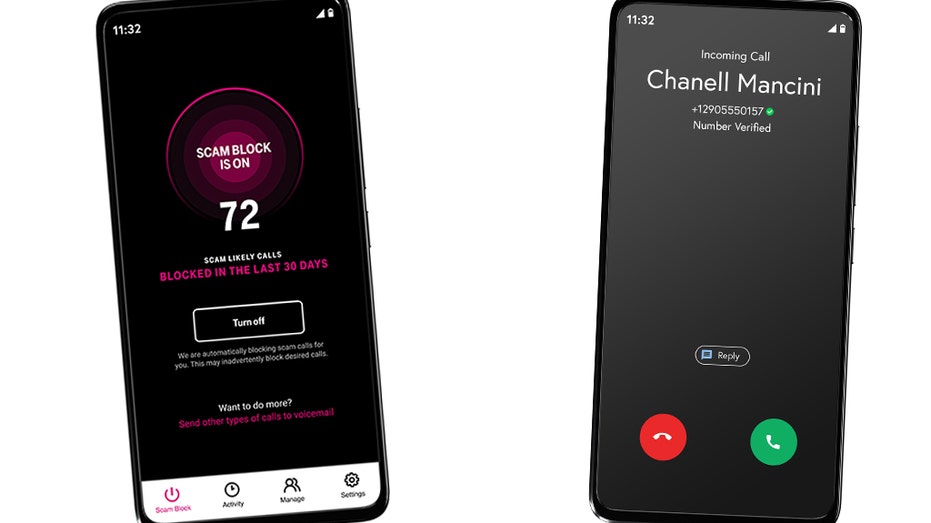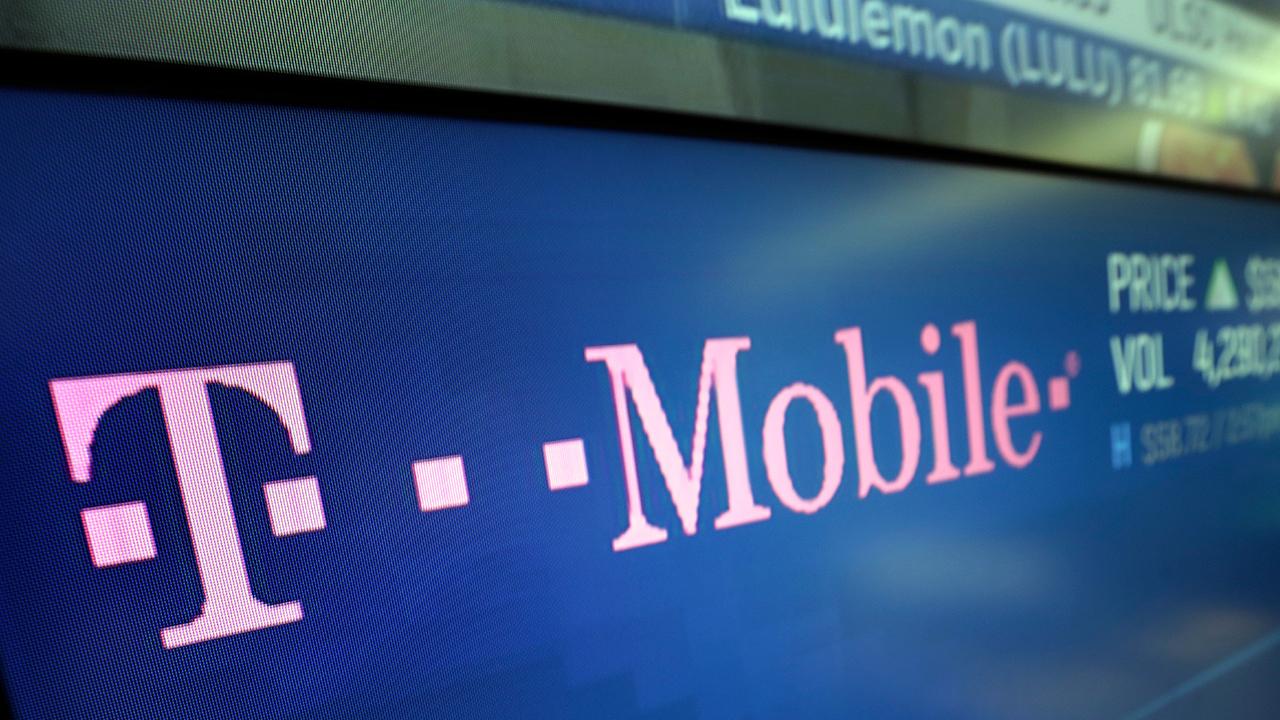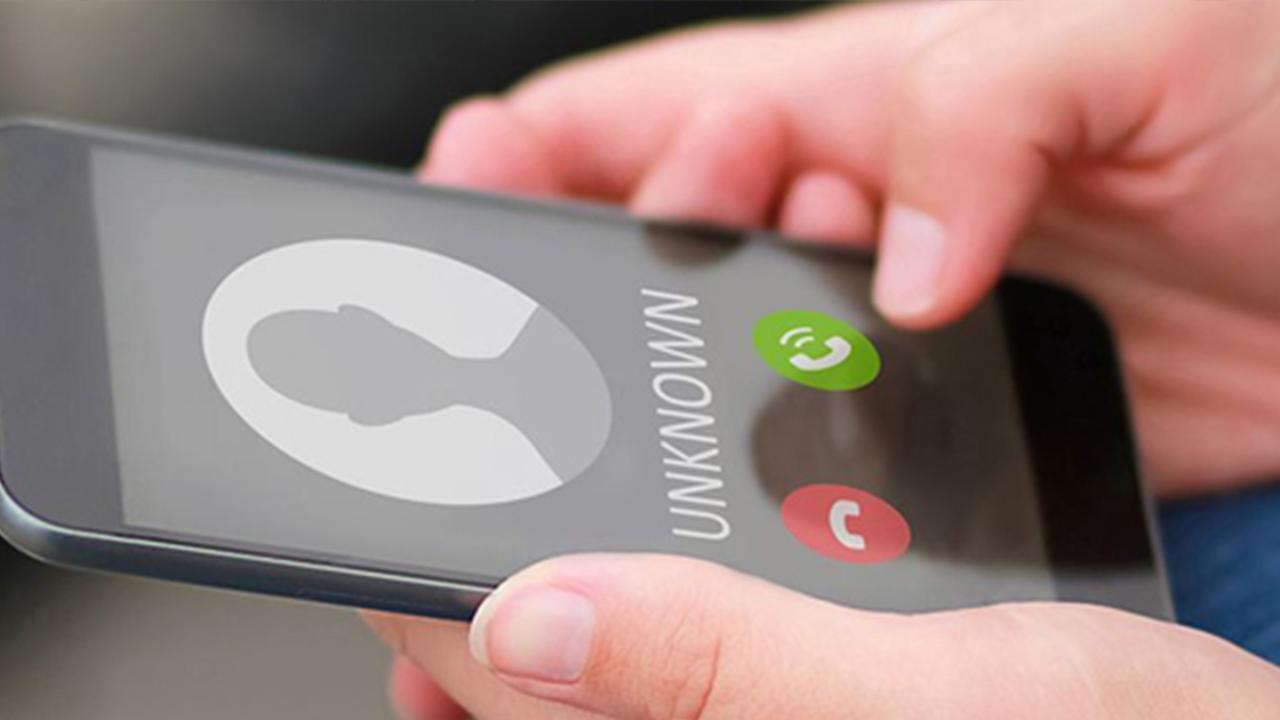T-Mobile kicks off new merger with robocall killer
According to the FTC, Americans have lost over $80 million to coronavirus-related scams this year
T-Mobile is cracking down on scams and unwanted robocalls with a new free service called Scam Shield.
Scam Shield is the first Un-Carrier initiative being taken by the company since merging with former competitor Sprint, whose retail stores will officially begin operating under the T-Mobile brand nationwide starting August 2.
| Ticker | Security | Last | Change | Change % |
|---|---|---|---|---|
| TMUS | T-MOBILE US INC. | 197.39 | -4.47 | -2.21% |
“Now that Sprint is a part of T-Mobile, we can take on even bigger problems, so today, we’re taking on one of the biggest pain points in wireless — scams and unwanted robocalls,” said T-Mobile CEO Mike Sievert in a press release Thursday. “Scam Shield has never been more needed than it is right now. Scammers see COVID-19 as an opportunity to take advantage of Americans at their most vulnerable. When we saw that happening, we knew we had to take bold, swift action. With Scam Shield, T-Mobile customers get fewer scam calls, period … and it’s all because of our advanced network.”
SUPREME COURT UPHOLDS CELLPHONE ROBOCALL BAN
Scam Shield will notify customers of suspicious calls by sending a "Scam Likely" alert. Customers can also turn on scam blocking, which will prevent calls at the network level so that customers never even see the notification.
The service also features enhanced caller ID, which will verify if the call is coming from a real person or business.

Scam Shield (Photo courtesy T-Mobile)
In addition, Scam Shield offers T-Mobile PROXY, a second number that can be used to keep a customer's regular number free from scams and unwanted calls at no extra cost, as well as a free number change for any customer who becomes a "spam-magnet."
T-MOBILE ASKS CALIFORNIA TO WAIVE 1,000 JOB MANDATE
According to the announcement, the features can be accessed through the Scam Shield app, which will be available to the entire T-Mobile brand, including Metro by T-Mobile and Sprint customers, starting July 24.
T-Mobile postpaid and Metro customers can download Scam Shield on the App Store or Google Play, and can currently use Scam Block by dialing #662#.
Sprint iOS customers can download the upgraded Call Screener app from the App Store while Android customers simply open and enable the pre-installed app. In the app, Sprint customers can get their free scam ID and blocking, and activate free Caller ID.
The company is also offering a free Be ID Aware service, which provides ID monitoring and alerts for 12 months from security software company McAfee. Customers can sign up between July 24 and August 31 for free at promotions.t-mobile.com or promo.metrobyt-mobile.com by using their phone number and the code 2020McAfee.
CORONAVIRUS SCAMMERS TARGET COLLEGE STUDENTS
Sievert says Scam Shield poses a challenge for competitors Verizon and AT&T, who he claimed are "profiting off consumer fears" by "charging to protect you from the very scams and robocalls their network brings you."
"It’s wrong, and it’s got to stop,” Sievert added.
The T-Mobile executive promised that his recently merged company "will continue righting the wrongs of this industry," challenging the carriers to "get off their assets, stop profiting from fear and do the right thing, because everyone needs and deserves protection now, more than ever.”
Verizon Consumer Group CEO Ronan Dunne responded to Sievert's claim in a statement Thursday saying that the company "continues to lead the way on robocalling efforts on behalf of our customers and the industry."
"Our ongoing efforts have helped contribute to eight consecutive months of decline in unwanted robocalls calls, and we will continue to lead the industry forward,” Dunne said.
Verizon added its ongoing efforts, coupled with the pandemic, have led to a 30 percent decline in unwanted calls over the last three months.
Currently, the company offers a free service called Call Filter, which screens incoming calls, reports numbers as spam, and blocks spam numbers by risk-level. However, the company also has premium version known as Call Filter Plus, which charges customers $2.99 per month per line for additional features including:
- Seeing the caller’s name for unknown numbers
- Creating your custom block list so that calls from specific, unwanted numbers are automatically forwarded to voicemail.
- Creating a custom spam list so you can be alerted when specific numbers attempt to call you in the future.
- Viewing the risk-level of incoming calls, including potential spam, robocaller or fraud.
- Using "Spam lookup" to search our spam database to see if a number has already been identified as spam.
GET FOX BUSINESS ON THE GO BY CLICKING HERE
Meanwhile, AT&T currently offers a free service called Call Protect, which includes the following features:
- Automatic Fraud Blocking, which scans and blocks suspected scam calls, whether they're automated or not.
- Spam Risk Blocking, which blocks calls or sends them to voicemail if they’re identified as “Spam Risk.”
- Unknown callers, which sends anyone not on your contact list straight to voicemail.
- Personal Block List, which builds a custom block list for unwanted callers.
- Siri Shortcuts, which allows you to block and report unwanted calls using Siri.
- Custom Call Controls, which lets you set up your calls into categories to accept, block or send straight to voicemail.
The company also offers "Call Protect Plus" for $3.99 per month, which includes automatic fraud blocking and the personal block list, as well as enhanced caller ID and reverse number lookup.
| Ticker | Security | Last | Change | Change % |
|---|---|---|---|---|
| VZ | VERIZON COMMUNICATIONS INC. | 46.29 | -0.77 | -1.64% |
| T | AT&T INC. | 27.13 | -0.18 | -0.66% |
According to the Federal Trade Commission, Americans have already lost more than $80 million to coronavirus-related scams this year, which increased by 70 percent from May to June alone. Americans nationwide have been hit with more than 22 billion calls this year, according to RobocallIndex.com
CLICK HERE TO READ MORE ON FOX BUSINESS





















